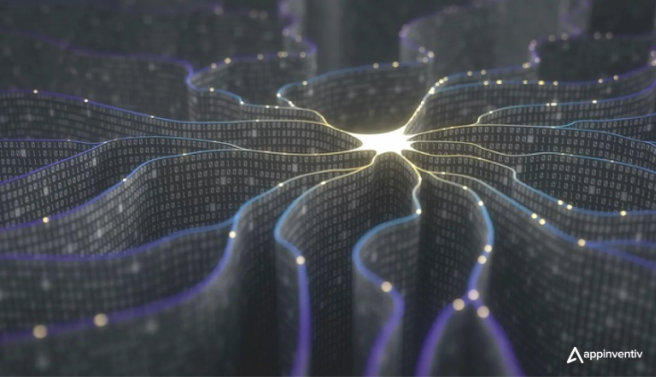Predictive Analytics in Healthcare: Transforming Patient Care in 2025

Strong8k brings an ultra-HD IPTV experience to your living room and your pocket.
The healthcare industry is rapidly evolving, driven by technological advancements and data-driven decision-making. Among the most transformative innovations is predictive analytics in healthcare, a cutting-edge approach that leverages data to forecast outcomes, optimize care, and improve operational efficiency. As we approach 2025, predictive analytics is set to revolutionize how healthcare providers diagnose, treat, and manage patient health.
This blog explores what predictive analytics entails, its applications, benefits, challenges, and the future it promises for the healthcare industry.
What is Predictive Analytics in Healthcare?
Predictive analytics in healthcare involves using statistical techniques, machine learning algorithms, and historical data to anticipate future outcomes. By analyzing patterns in patient data, healthcare providers can make informed predictions about potential health issues, disease progression, and treatment outcomes.
For instance, predictive analytics can identify patients at risk of chronic diseases, allowing for early intervention and tailored care plans. This proactive approach not only improves patient outcomes but also reduces healthcare costs.
Key Applications of Predictive Analytics in Healthcare
Predictive analytics has a wide range of applications in the healthcare sector, transforming various aspects of patient care and hospital management.
1. Disease Prediction and Prevention
By analyzing patient data such as medical history, lifestyle habits, and genetic information, predictive analytics can identify individuals at risk of developing chronic conditions like diabetes, heart disease, or cancer. Early detection allows for timely interventions, improving patient outcomes and reducing the burden on healthcare systems.
2. Personalized Treatment Plans
Predictive analytics enables healthcare providers to develop customized treatment plans based on individual patient data. For instance, oncology specialists can use predictive models to determine how a specific cancer treatment might affect a patient, ensuring better outcomes and fewer side effects.
3. Hospital Resource Management
Hospitals can use predictive analytics to optimize resource allocation, such as managing bed availability, staff scheduling, and medical equipment. This ensures that healthcare facilities are better prepared to handle patient inflow during peak times or emergencies.
4. Reducing Readmission Rates
By identifying patients at high risk of readmission, hospitals can implement targeted follow-up care and support. This reduces readmission rates, improves patient satisfaction, and minimizes penalties from healthcare regulatory bodies.
5. Fraud Detection and Prevention
Predictive analytics can analyze billing patterns and claim data to detect anomalies that may indicate fraudulent activities. This helps protect healthcare providers and insurance companies from financial losses.
Benefits of Predictive Analytics in Healthcare
The integration of predictive analytics in healthcare offers numerous benefits for patients, providers, and the entire healthcare ecosystem.
Improved Patient Outcomes: Early detection and intervention lead to better health outcomes and higher survival rates for critical illnesses.
Cost Savings: By preventing hospital readmissions, optimizing resource usage, and detecting fraud, predictive analytics significantly reduces healthcare costs.
Operational Efficiency: Hospitals can streamline operations, ensuring that resources are allocated effectively and workflows are optimized.
Enhanced Patient Experience: Personalized treatment plans and proactive care improve patient satisfaction and trust in the healthcare system.
Data-Driven Insights: Predictive analytics provides actionable insights, enabling healthcare providers to make informed decisions.
Challenges in Implementing Predictive Analytics in Healthcare
While the benefits are immense, implementing predictive analytics in healthcare comes with its own set of challenges.
1. Data Privacy and Security
Healthcare data is highly sensitive, and ensuring its security is paramount. Organizations must comply with regulations such as HIPAA to protect patient information while leveraging predictive analytics.
2. Integration with Existing Systems
Integrating predictive analytics tools with existing healthcare systems and workflows can be complex and costly. Compatibility issues may hinder seamless implementation.
3. Data Quality and Accuracy
The effectiveness of predictive analytics relies on the quality of the data used. Inaccurate or incomplete data can lead to incorrect predictions and outcomes.
4. Skill Gap
Healthcare organizations may lack skilled professionals to implement and manage predictive analytics tools. Training staff and hiring data scientists is essential for success.
5. Ethical Concerns
Using predictive analytics in healthcare raises ethical questions, such as how predictions should be used and who should have access to the data.
The Future of Predictive Analytics in Healthcare
As technology continues to advance, the potential of predictive analytics in healthcare is limitless. Here’s what the future holds:
Integration with Artificial Intelligence (AI): Combining predictive analytics with AI will enable even more accurate and dynamic predictions, revolutionizing patient care.
Real-Time Analytics: With the growth of IoT devices and wearable technology, healthcare providers can access real-time data, enabling on-the-spot predictions and interventions.
Precision Medicine: Predictive analytics will play a vital role in precision medicine, tailoring treatments to individual patients based on their genetic makeup and other unique factors.
Global Collaboration: Sharing predictive models and healthcare data across borders will improve disease surveillance and management on a global scale.
Patient Empowerment: Predictive tools will empower patients to take charge of their health by providing insights into their risk factors and how to mitigate them.
Conclusion
Predictive analytics in healthcare is shaping the future of medicine, offering transformative solutions to some of the industry’s most pressing challenges. From disease prevention to resource optimization, this technology is paving the way for a more efficient and patient-centered healthcare system.
As we approach 2025, healthcare providers and organizations must embrace predictive analytics to stay competitive, improve patient outcomes, and reduce costs. With its ability to harness the power of data, predictive analytics holds the key to a healthier and more sustainable future.
FAQs
What is predictive analytics in healthcare?
Predictive analytics in healthcare uses data analysis and machine learning to anticipate health outcomes, optimize treatments, and improve patient care.
How does predictive analytics benefit healthcare providers?
It enhances patient outcomes, reduces costs, and streamlines hospital operations, ensuring better resource utilization and decision-making.
What are the challenges of implementing predictive analytics in healthcare?
Challenges include data privacy concerns, system integration issues, data quality, skill gaps, and ethical considerations.
What role does AI play in predictive analytics in healthcare?
AI enhances predictive models by making them more accurate and adaptable, enabling real-time predictions and personalized care.
How can predictive analytics reduce healthcare costs?
By preventing hospital readmissions, optimizing resource use, and enabling early disease detection, predictive analytics minimizes unnecessary expenses.
Note: IndiBlogHub features both user-submitted and editorial content. We do not verify third-party contributions. Read our Disclaimer and Privacy Policyfor details.



